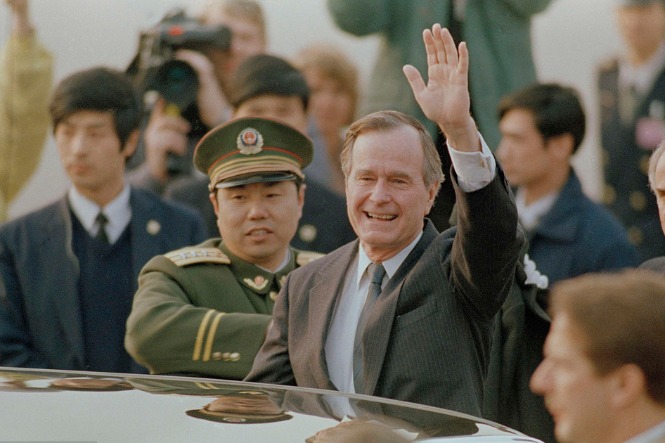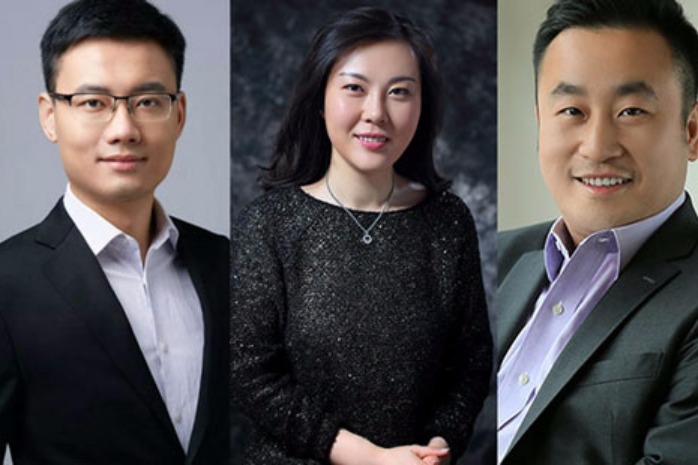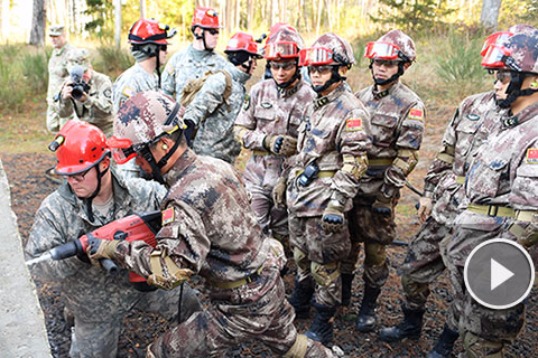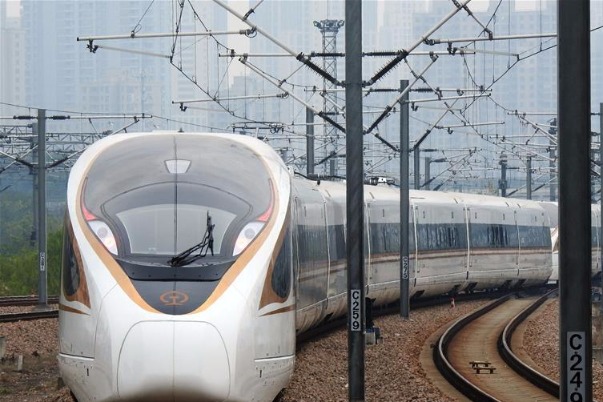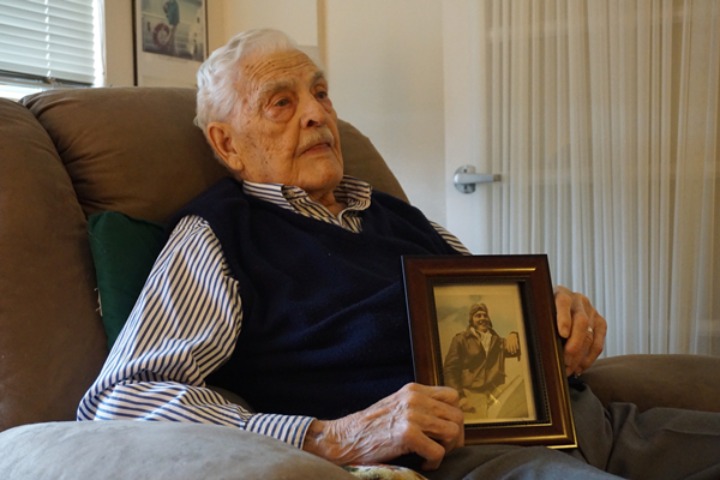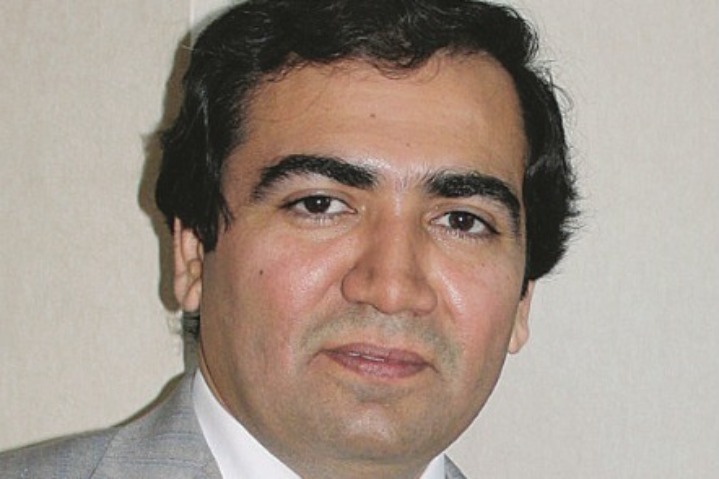'Hank' speaks frankly

|
| Maurice “Hank” Greenberg, the chairman and CEO of C.V. Starr & Co Inc, in his Manhattan office. |
The biggest problem for China and the United States is a lack of trust between the two countries, says Maurice ‘Hank’ Greenberg, the chairman and CEO of C.V. Starr & Co who has spent almost a half century doing business in China. And Greenberg wants to see China and the US resolve their differences “peacefully, and hopefully with some speed”, reports Amy He from New York.
Maurice “Hank” Greenberg still travels to China about three times a year, and after four decades of countless trips to the country for business, the chairman and CEO of C.V. Starr & Co Inc knows how to beat jetlag.
Every time he goes to China he tries to time his arrival for between 4 pm and 6 pm.
After arriving at his destination, he has an hour-long business meeting, followed by a work out and then sleep. The next morning he gets up early, works out again, and just like that, he’s officially on China time.
His latest visit to the country was a couple of months ago when he flew to Shanghai where Starr has its headquarters, where Greenberg was named an honorary citizen in 1997, and where insurance giant American International Group Inc (AIG), which he led until 2005, was founded in 1919.
Importance of history
“It’s always been one of the leading cities in China, and we have a lot of history there. History is important to us,” he said in a recent interview with China Daily. Shanghai also is an attractive city to Greenberg because “the weather’s a lot better than it is in other places in China,” he joked.
Greenberg has seen more of what China has gone through over the last 40 years than any other US businessman, including how the country’s relationship with the US has changed.
“I’m optimistic because I think a country as large as China will continue to change, as it has. Since I’ve been going to China, I’ve seen many changes, for the good. When I first went to China, it was not the second-largest economy in the world. It is now the second-largest economy in the world,” he said.
But China’s growth doesn’t mean that the economy is free from challenge, with its biggest obstacle now being how to transition the economy from a manufacture-led one to consumer-driven, Greenberg said. The Chinese economy is 30 percent consumer-led, compared to the US’ 70 percent, he noted, adding that if the Chinese government can make the transition go faster, it will result in growth that will benefit the people.
Greenberg cautioned that the government can’t rely only on state-owned enterprises, saying they are “not the most efficient”. He also thinks that banks need to be more consumer-oriented so small- and medium-sized businesses can get access to capital and loans. “As they grow, they hire more people, they become consumers, they buy more — it’s like a rolling stone. It gets going, faster and faster,” Greenberg said.
His specialty, of course, is the insurance industry. The growth of China’s relatively young insurance sector can be traced to Greenberg’s involvement as an executive at AIG. It was under his tenure that the American insurance giant re-established its business in China after operations were halted in 1949. Instability rocked China in the 1940s and insurance companies in the Chinese mainland then — many of whom were foreign companies — relocated to Hong Kong or shuttered their Chinese operations completely.
Greenberg visited China for the first time in 1975, just a few years after former US president Richard Nixon and then national security advisor Henry Kissinger made their historic visit to China to normalize US-China relations. AIG applied for an operating license at the time of Greenberg’s visit and didn’t get it until 17 years later, a wait that Greenberg said ultimately paid off.
“I’m never very patient. But I knew that one day, China would have to open up. A country with 1.3 billion people could not be left out of the world’s trading system and be isolated. It was only a matter of when, not if,” he said.
As the first foreign insurance company back in China, it helped the insurance industry learn how to operate, he said. AIG established a relationship with the People’s Insurance Company of China (PICC) and the Chinese insurance industry was reinstated in 1979, and remained small.
“The PICC at that time was no bigger than this office. It was very small. We worked out a reinsurance arrangement with them and were very helpful to them,” Greenberg said.
Today, the Chinese insurance market has greatly expanded and companies have been making US headlines for their marquee acquisitions, such as Anbang Insurance’s $2 billion purchase of the New York Waldorf Astoria hotel and its recent $1.6 billion purchase of US insurer Fidelity & Guaranty Life. Despite Chinese companies’ growth domestically and globally, the country’s insurance market is mostly focused on automobile insurance, which Greenberg said means profits are still marginal.
“The automobile insurance is relatively new in China. Automobiles are relatively new. The roads are very crowded, the drivers are not very experienced, so there are more losses than would be true say five or 10 years from now. Also, the expense ratio is very high, compared to the United States. That too will have to change. You have to become more efficient. I don’t say this critically — I say this as a reality of the market today,” he said.
This is where companies like Starr can help, Greenberg added. With its operations in China, it’s in a position to help Chinese companies follow their clients to different countries, and it has the knowledge on how to do insurance business in different countries, he said.
Addressing differences
On the US-China relationship, Greenberg said he hopes it will evolve over the next several years as the two countries work on issues. He has mentioned in past interviews that US and China’s biggest source of conflict is lack of trust, and for the relationship to continue to mature, the two countries need to address it head-on.
“The biggest problem we have is trust between us — we have to overcome that. It seems to me that a US-China close relationship is in the national interest of both countries. We must do everything we can to enhance that. We can’t let little things trouble us. We both have to resolve any differences that we have. It’s important. It goes beyond today, and even in a year or two. It has a lot to do with the future of both countries,” he said.
There’s no better example of how mutual interests can play out in the two economies than in how much money each country has invested in the other and how much people-to-people exchange is happening in education, he said.
“Where do all the Chinese students want to go to school? In Russia, or the United States? Where do the Chinese want to invest? In Russia, or the United States? When I ran AIG, we did business in China and in Russia. We had more opportunities in China than we had in Russia,” Greenberg said.
In his near half a century of doing business in China, Greenberg has met with many Chinese leaders, among them President Xi Jinping, Premier Li Keqiang, former premier Zhu Rongji, who was also former mayor and party secretary of Shanghai, and Han Zheng, current party secretary of Shanghai and former mayor of the city.
His office is lined with photos taken of him with Chinese leaders, and he’s talked to them about foreign management of state-owned enterprises, and if he could, he said he would reiterated that he would like to see China and the US resolve differences that exist between them — “peacefully, and hopefully with some speed” — so that they can spend time on seeking areas of cooperation.
On how President Xi compares to his predecessors, Greenberg said, “Each has different qualities. I can’t say one is better than the other. I think you have good leaders, they’re chosen by the bureaucracy — the Standing Committee. Each one has qualities that stand out. They’re chosen by a group of people who think that this is what we need for the next eight years or 10 years.”
Greenberg has been a big advocate for China’s participation in global trade, including getting China into the World Trade Organization, and with the recent news about the Trans-Pacific Partnership agreement — of which China is not a member — Greenberg said he wants to see the US establish a free-trade agreement with China, no matter how long it takes.
“It may take 10 years to negotiate, but so what? It took us 10 years to negotiate with Korea for a free-trade agreement. It took China 10 years with Australia to have a free trade agreement. We should begin discussing that,” he said.
Contact the writer at amyhe@chinadailyusa.com







